
Wisdom Quote: “Knowing others is intelligence; knowing yourself is true wisdom”.
This quote, often attributed to Laozi (Lao Tzu), the ancient Chinese philosopher and founder of Daoism, encapsulates a profound distinction between two types of knowledge: external knowledge and self-knowledge.
“Knowing others is intelligence”:
This part of the quote speaks to the importance of understanding and interpreting the world around us—other people, their behaviors, their motives, and the dynamics that influence them. It suggests that intelligence is often associated with our ability to perceive, analyze, and respond to the complexities of the external world, including relationships, social structures, and interactions. Being able to understand others’ thoughts, feelings, and actions allows us to navigate social and professional situations more effectively. However, this kind of knowledge is still outward-facing and focuses on understanding others.
“Knowing yourself is true wisdom”:
This part takes the idea further, indicating that while understanding others is important, true wisdom lies in understanding yourself. Self-knowledge is about gaining insight into your own mind, emotions, values, strengths, weaknesses, and limitations. It means being aware of your motivations, your desires, and the underlying principles that guide your decisions. Self-awareness allows you to make wiser choices, cultivate personal growth, and live authentically. By understanding yourself, you can navigate the world with greater clarity and avoid being swayed by external circumstances or superficial concerns.
Here’s a story inspired by Wisdom Quote “Knowing others is intelligence; knowing yourself is true wisdom”:
Wisdom Story: “The Wise Traveler“
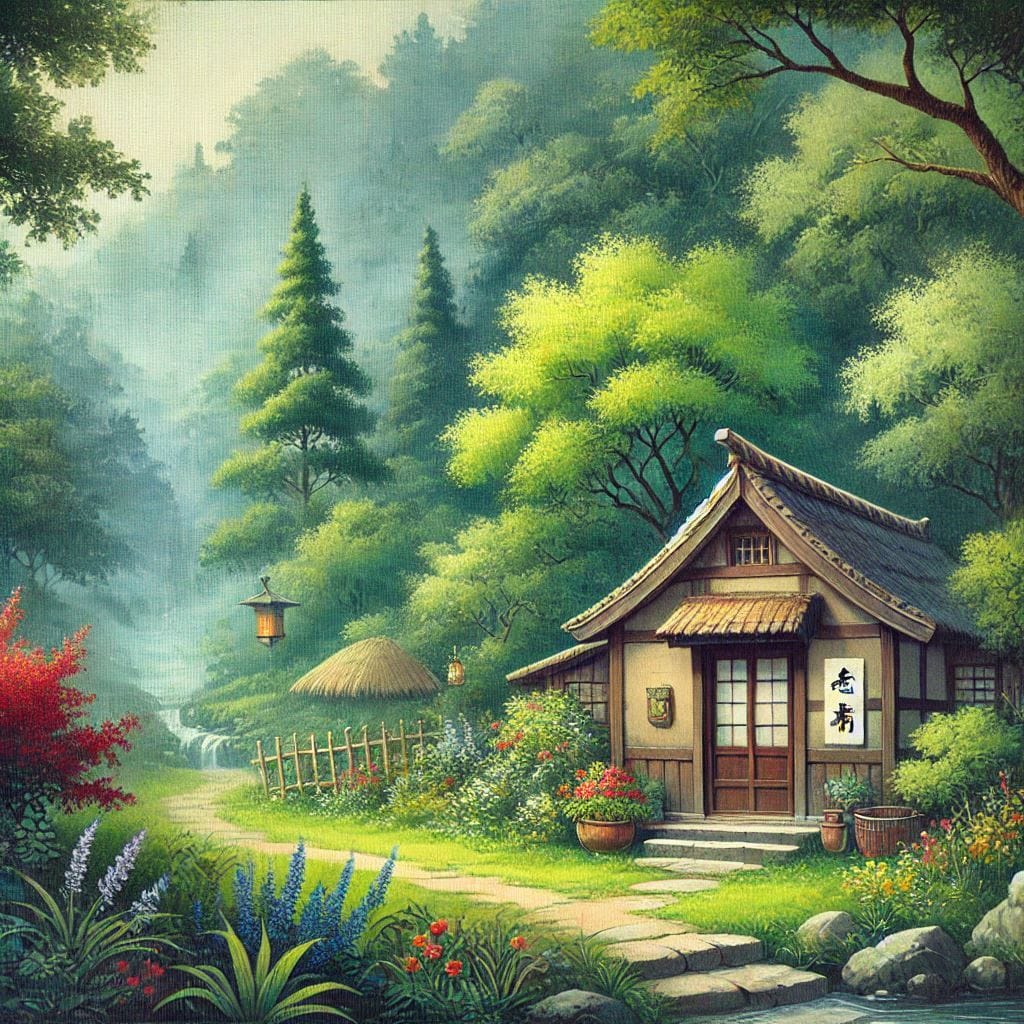
In a small village nestled at the edge of a vast forest, there lived an old man named Zhen. He was known throughout the land for his wisdom and calm demeanor. People from distant places traveled to seek his counsel, and his small home was often filled with visitors—kings, scholars, traders, and wanderers—each hoping to learn something that would help them solve their problems.
One bright morning, a young traveler named Li arrived at Zhen’s door. Li was a man of great ambition, eager to make his mark in the world. He had spent many years traveling across lands, observing and learning from different people, cultures, and situations. He prided himself on his sharp intelligence and the breadth of his knowledge about others.
“I have come to seek your wisdom, Master Zhen,” Li said, bowing respectfully. “I’ve spent many years learning about the world and its people. I have studied every kingdom’s ways, understood every ruler’s tactics, and learned to read the hearts and minds of men. But still, I find myself unfulfilled. I don’t know what to do next. I seek your guidance.”
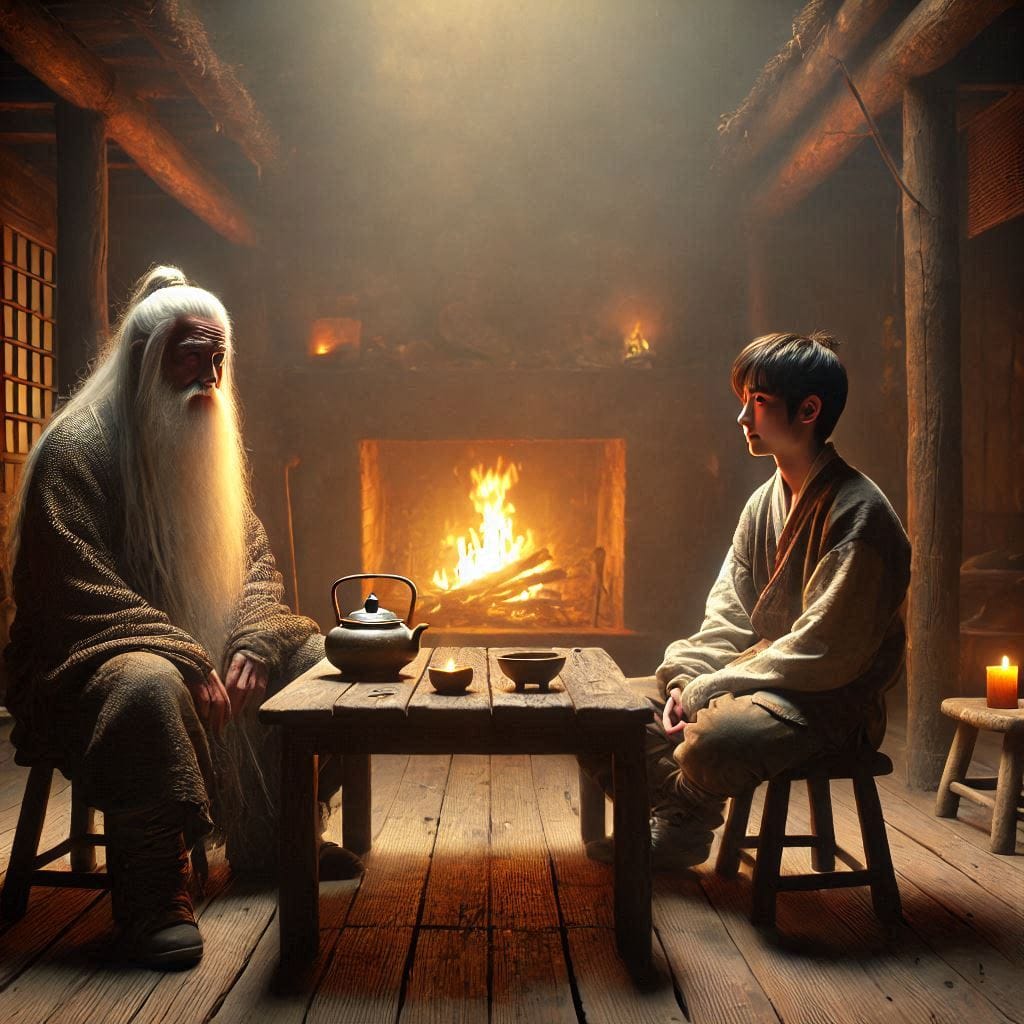
Zhen smiled gently and invited Li to sit by the fire. After a moment of silence, the old man spoke.
“You are indeed a traveler of great knowledge, Li. You have learned much about others, and that is an invaluable skill. But tell me, do you know yourself?”
Li was taken aback by the question. He had never really thought about it. He was so focused on understanding the world around him that he had never paused to look inward.
“I… I know what others want, what they fear, what they need,” Li replied slowly. “But I suppose I’ve never asked myself those same questions.”
Zhen nodded. “Understanding others is important, but understanding yourself is even more so. Come, let us walk.”
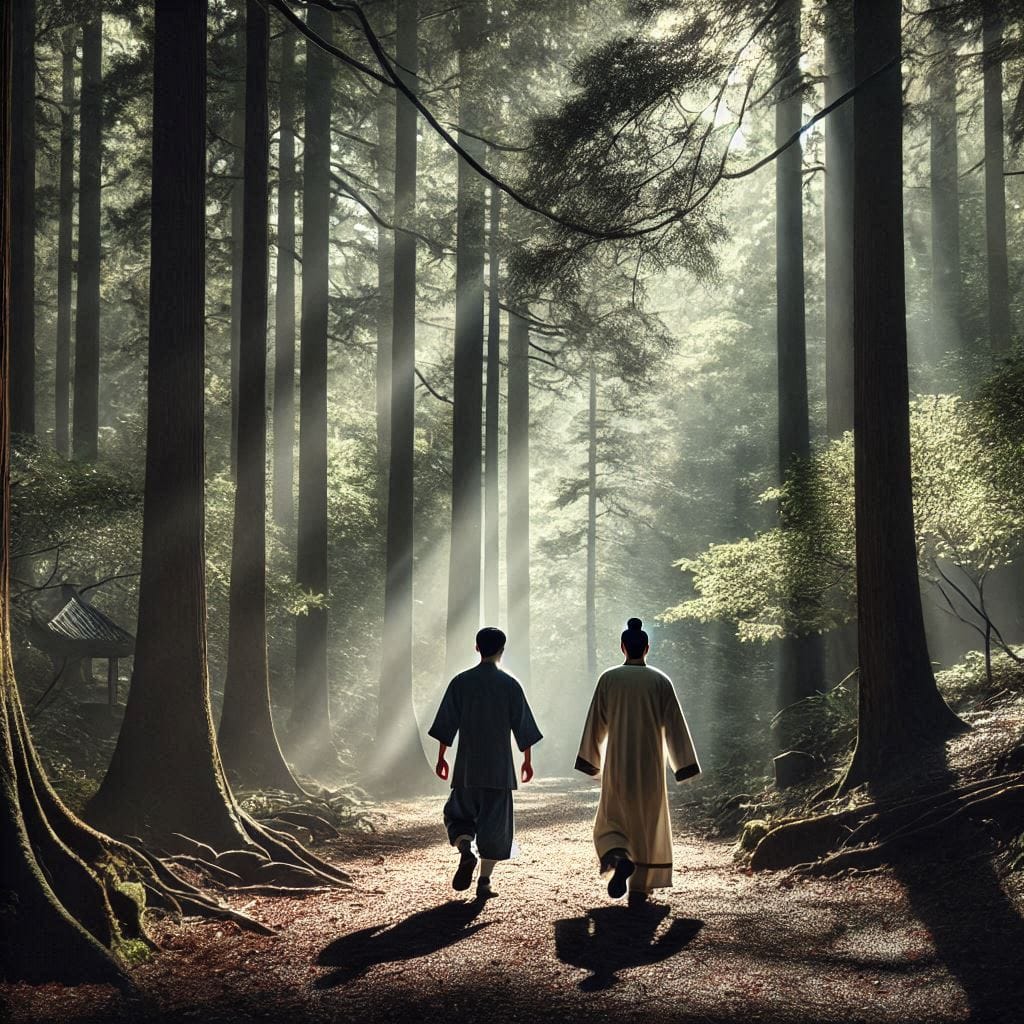
They left the warmth of the cottage and ventured into the forest, the air cool and the path shaded by tall trees. As they walked, Zhen continued.
“The world is filled with distractions, Li. You can learn the ways of many people, but if you don’t know what truly stirs your heart, all that knowledge will never bring you peace.”
Li thought about Zhen’s words as they walked deeper into the woods. The forest was alive with the sound of birds and rustling leaves, but the stillness of the moment made him feel both connected to the world and strangely isolated.

After a while, they came to a clearing where a small, serene pond lay still, reflecting the sky. Zhen turned to Li and said, “Sit by the pond and look into the water.”
Li knelt by the edge and peered into the pond. The surface was smooth, and he could see his reflection perfectly. For a moment, he saw nothing but the face of a young man who had traveled far, learned much, and yet, inside, felt a deep emptiness.
Zhen, standing nearby, watched quietly. Time passed in silence, the air heavy with the weight of the unspoken. Finally, Li spoke.
“I see only my face. But I don’t know who I truly am.”
Zhen nodded, his voice gentle. “And that, my young friend, is the key to true wisdom. You can study the world for a lifetime, but without knowing yourself—your own desires, your own fears, your own purpose—your knowledge of others will remain shallow. True wisdom comes from understanding both your strengths and your vulnerabilities.”
Li looked down at the water again. For the first time, he didn’t see just a reflection; he saw the parts of himself that he had been avoiding—the confusion, the longing, the uncertainty about his future.
“Master Zhen,” he said quietly, “how do I begin to know myself?”
Zhen smiled kindly. “By listening. By sitting in stillness and asking yourself the difficult questions. Who are you, really? What do you seek? What brings you joy? What causes you pain? In time, the answers will come, not through books or the voices of others, but from the depths of your own heart.”
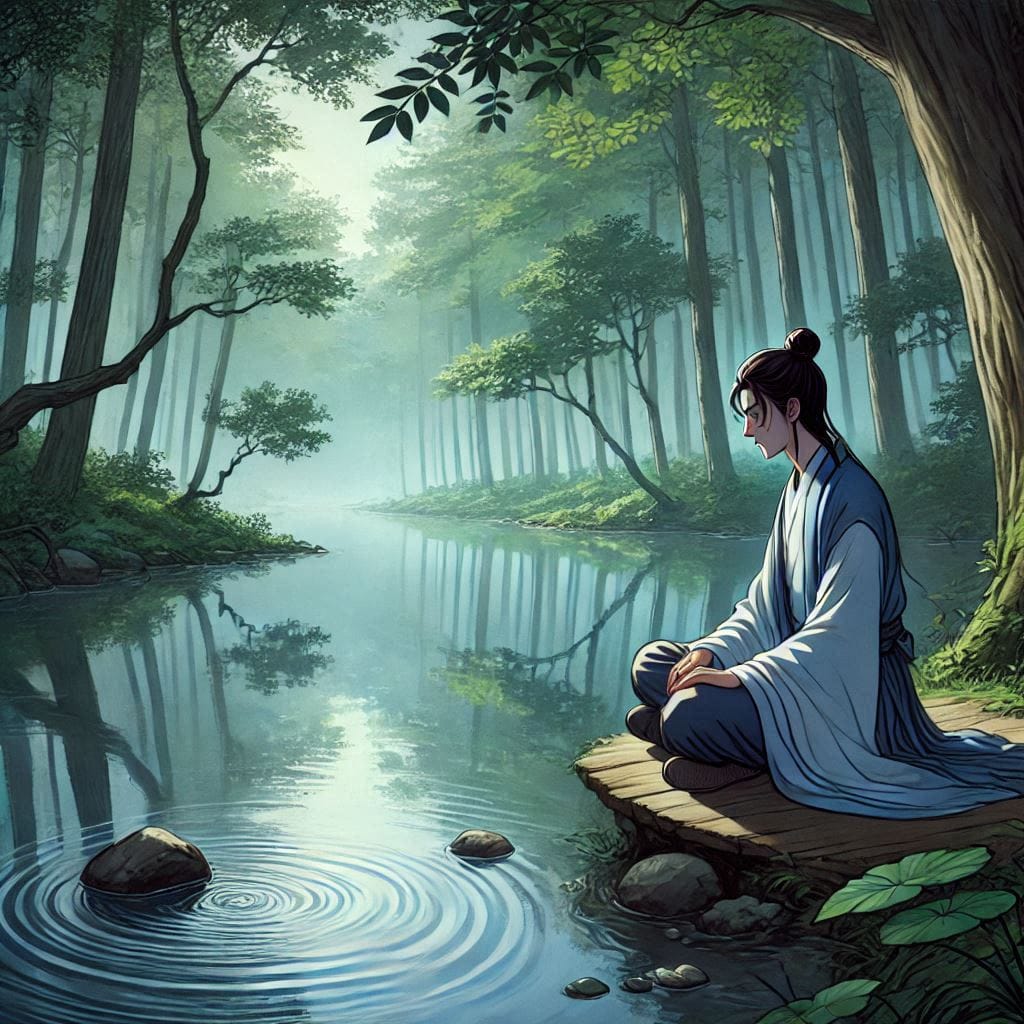
Li sat by the pond for hours, in quiet contemplation. As the sun began to set, he felt a sense of clarity he had never known before. He realized that the path he had been seeking wasn’t about conquering the world or impressing others with his knowledge—it was about embracing his own truth, understanding his own desires, and aligning his actions with what felt right deep inside.
He stood, feeling a new kind of peace.
“Thank you, Master Zhen,” he said with gratitude in his voice. “I understand now.”
Zhen nodded, his eyes twinkling with quiet approval.
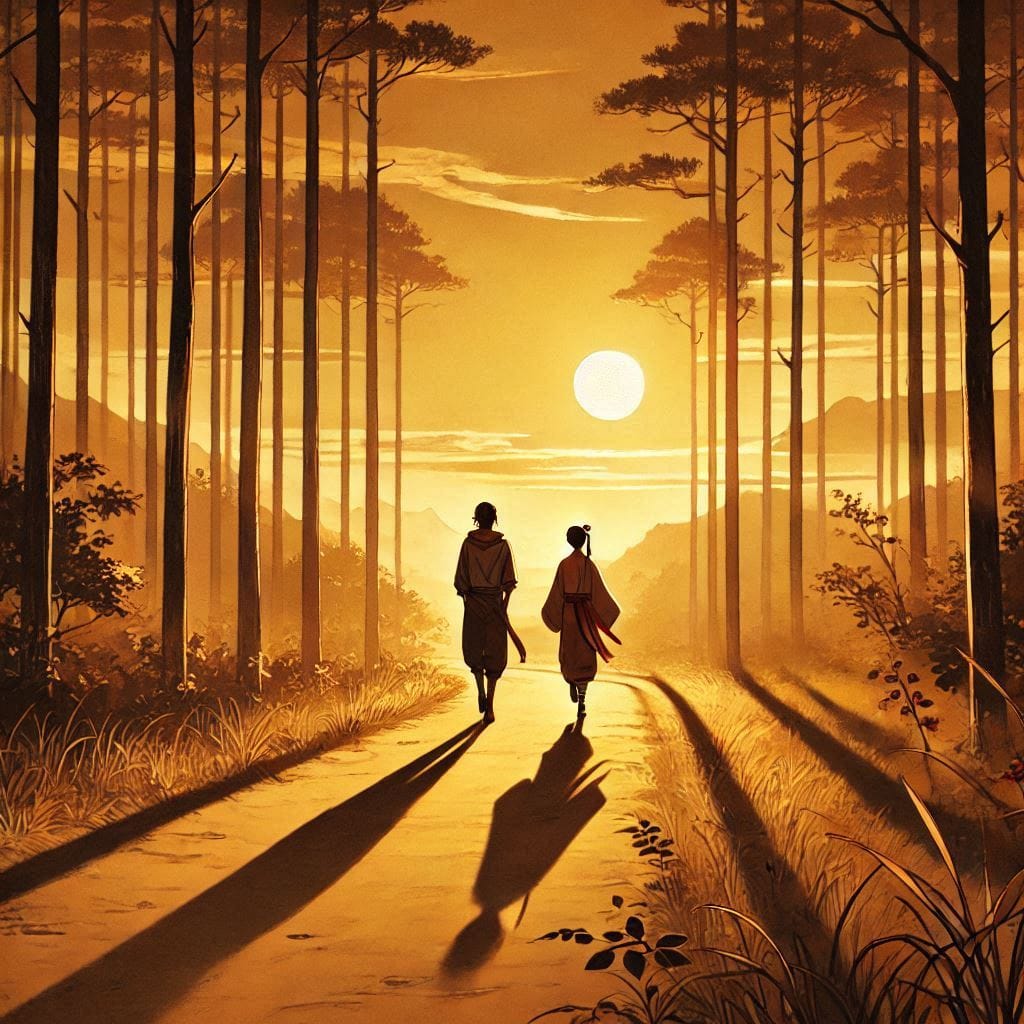
“Knowing others is intelligence,” Zhen said, as they walked back toward the village. “But knowing yourself, Li, is true wisdom. When you understand who you are, you can navigate the world with purpose and clarity. Only then can you truly help others.”
Li smiled, his heart light. He had come seeking wisdom, but what he had found was a deeper understanding of himself—and in that moment, he knew that his journey had only just begun.
Here is the end of Wisdom Story of quote: “Knowing others is intelligence; knowing yourself is true wisdom”
To explore more on stories and dive into related ideas, be sure to check out the other posts where we cover all sort of stories related to quotes. Stay tuned for more…..
To explore more on quote topics, be sure to check out the other topics where we cover all categories of quotes. Stay tuned for more…..

